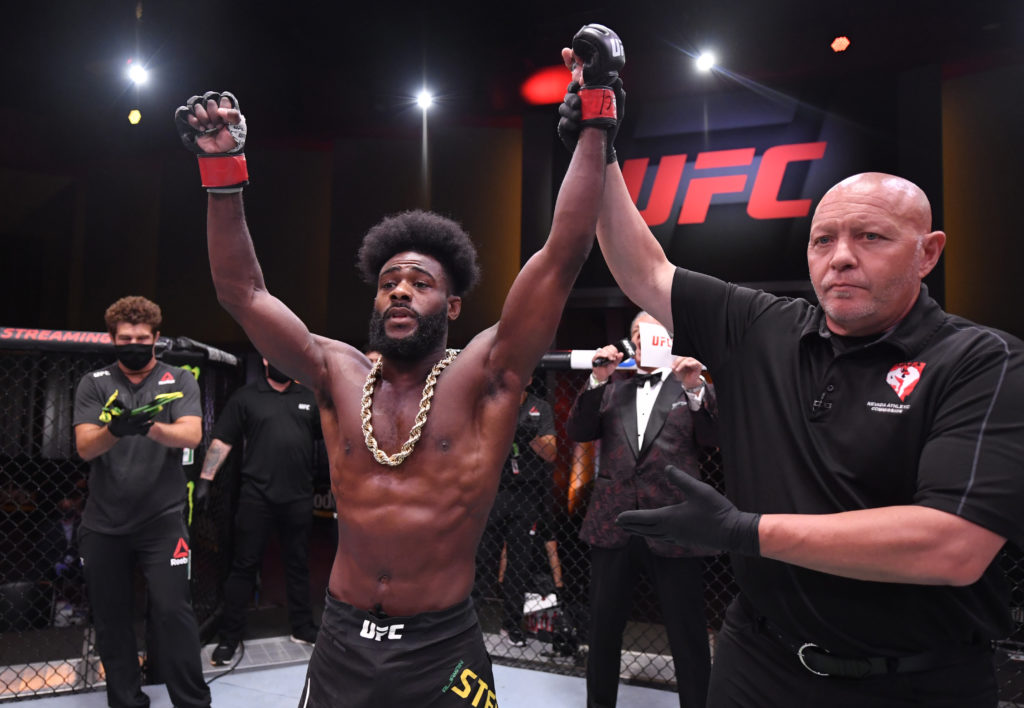Now, I’m not a financial expert – I’m more of a “let’s-keep-it-casual” kind of guy – but I’ve done some digging, and let’s just say the numbers are… interesting. The internet throws around figures like “$2 million” quite a bit, and honestly, that sounds about right considering his success in the UFC. But let’s be real, these numbers are estimates, and nobody really knows the exact amount sitting in his bank account, right? That’s his business!
What we do know is that Aljamain, aka “Funk Master,” has been putting in work. He’s a former UFC Bantamweight Champion, a title that doesn’t come easy. Think about all the sweat, the grueling training, the early mornings, the sacrifices… the guy’s a dedicated athlete. And that dedication pays off, not just in championship belts, but also in those sweet, sweet fight purses.

Now, I’ve seen reports mentioning his earnings from specific fights, like that whopping $1,490,000 payday against Sean O’Malley at UFC 292. Wowzers! That’s enough to make anyone do a happy dance. Of course, those numbers fluctuate – some fights are bigger than others, depending on the opponent, the event, and all that behind-the-scenes stuff that we, as regular fans, don’t always see. It’s like a rollercoaster ride – some peaks are incredibly high, and others… well, let’s just say they’re not as high. But hey, that’s the life of a professional fighter.
Beyond fight purses, there’s also the potential for endorsements. Think about it – a champion fighter like Aljamain has a brand. He’s got a fanbase, and that means companies might want to get him involved in their campaigns. That’s where those extra dollars come in, which can add up significantly over time. It’s a pretty smart way to increase your overall earnings. I bet he could sell a lot of… uh… functional athletic wear? Or maybe some really cool, funky headphones? I’m just brainstorming here!
But let’s not forget the expenses. Professional fighting isn’t just about showing up and throwing punches. There’s a whole team behind these guys – coaches, trainers, nutritionists, managers, travel, and everything else that goes into keeping a fighter at the top of their game. It’s a serious business, and running a professional fighting career isn’t cheap! Think of it as a small business, except the “product” is Aljamain himself. He needs to invest in his business to maintain and improve his performance.
So, while that $2 million figure might seem like a lot – and it is a lot of money for most of us – it’s important to keep the bigger picture in mind. We’re talking about a high-pressure, high-stakes career with significant expenses involved. It’s certainly a fantastic achievement, but I’m sure managing that wealth is a full-time job in itself.
Here’s a little table to illustrate the kind of financial considerations we’re talking about:
| Income Source | Estimated Contribution to Net Worth | Notes |
|---|---|---|
| Fight Purses | High, variable | Dependent on opponent, event, and performance |
| Endorsements | Moderate to High (potential) | Potential for significant growth depending on brand partnerships |
| Training & Expenses | High | Coaching, nutrition, travel, etc. |
| Investments | Variable (potential) | Smart investments can grow net worth over time |
To put things into perspective, let’s quickly compare Aljamain’s estimated net worth to some other big names in the UFC. This isn’t an exact science, and numbers vary depending on the source, but it helps illustrate the financial landscape. Conor McGregor, for instance, is reported to have a net worth significantly higher, in the hundreds of millions. That’s a massive difference, but it reflects years of success and brand building at a significantly higher level. The point is that Aljamain is doing extremely well for himself, but he’s still building his empire.

Ultimately, pinning down the precise net worth of any celebrity, athlete, or anyone for that matter, is tricky. Different sources will have different numbers, and those numbers are constantly in flux. But the important thing here is that Aljamain Sterling has achieved amazing things in the UFC, and his financial success reflects his dedication, skill, and hard work. He’s made a name for himself, and that’s a success story all its own.
So, what are your thoughts? What other factors do you think contribute to a professional fighter’s net worth? Let’s hear it!

















